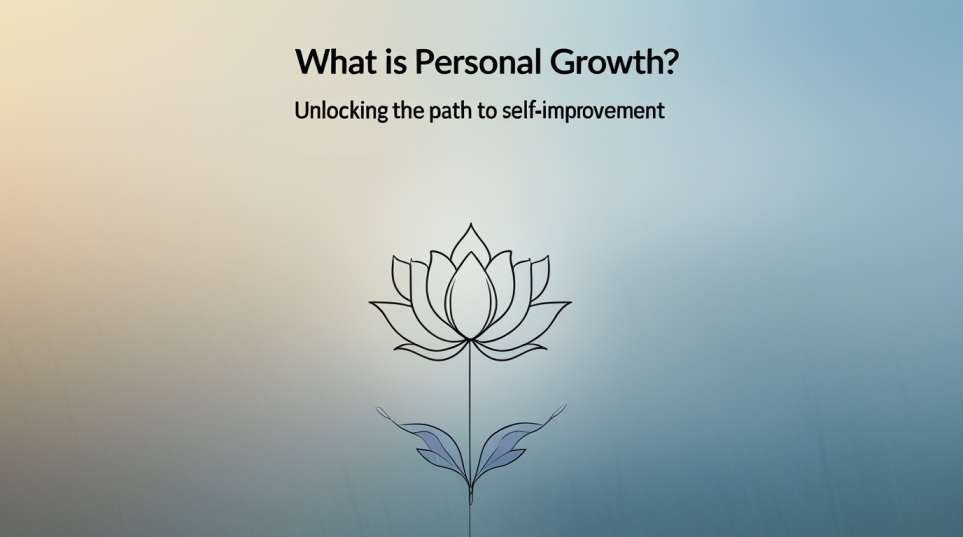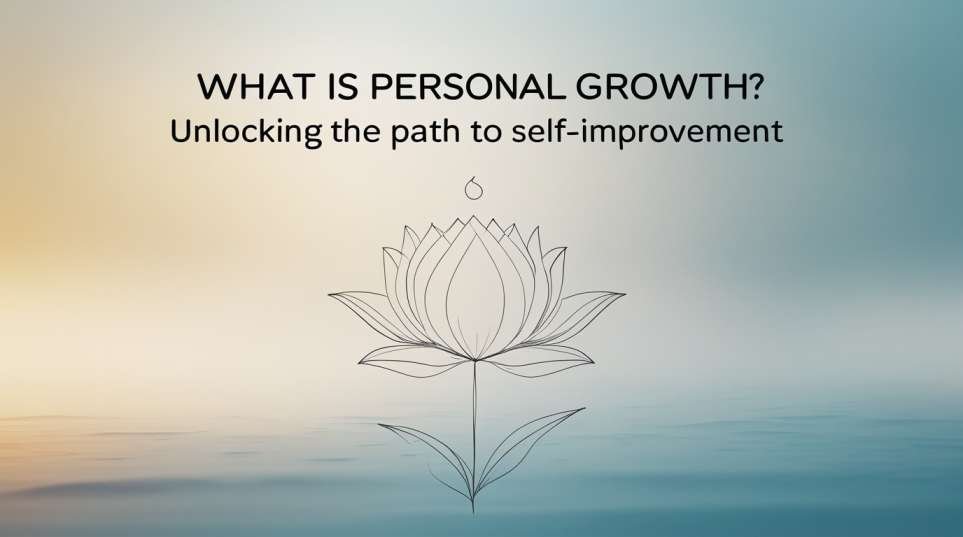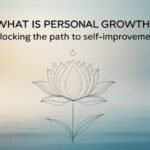What is Personal Growth?
Personal growth refers to the continuous process of improving oneself emotionally, intellectually, and spiritually. It is a lifelong journey of understanding your potential, overcoming limitations, and striving to become the best version of yourself. Personal growth is not a one-time event; it’s a commitment to evolving and expanding your abilities, mindset, and life perspective.
Personal growth often begins with self-awareness—the ability to recognize your strengths, weaknesses, desires, and aspirations. By understanding where you are and where you want to go, you set the foundation for meaningful self-improvement. The path to personal growth may involve learning new skills, cultivating healthy habits, and embracing challenges that push you out of your comfort zone. What is Personal Growth
Why is Personal Growth Important?
Personal growth plays a critical role in enhancing your overall well-being and quality of life. Here are some key reasons why it is essential: What is Personal Growth
- Builds Confidence: When you invest in self-improvement, you develop new skills and gain knowledge, which boosts your confidence. For instance, mastering public speaking or learning a new language can make you feel more accomplished and self-assured.
- Improves Relationships: Personal growth helps you develop emotional intelligence, empathy, and communication skills. These qualities enhance your ability to build and maintain healthy relationships with family, friends, and colleagues.
- Increases Resilience: By facing challenges and learning from failures, you develop resilience—the ability to bounce back from setbacks. This mental toughness is crucial for navigating life’s ups and downs.
- Fosters Fulfillment: Personal growth allows you to align your actions with your values and purpose. This alignment leads to a deeper sense of satisfaction and fulfillment in life.
- Promotes Adaptability: In a rapidly changing world, the ability to learn and adapt is vital. Personal growth ensures that you remain flexible and open to new opportunities. What is Personal Growth
Areas of Personal Growth
Personal growth encompasses various dimensions of life. Here are some key areas to focus on: What is Personal Growth
- Emotional Growth: Emotional growth involves understanding and managing your emotions effectively. It includes practices such as mindfulness, stress management, and cultivating a positive mindset.
- Intellectual Growth: Expanding your knowledge and skills is an integral part of personal growth. Reading books, attending workshops, and pursuing formal education are common ways to enhance intellectual growth.
- Spiritual Growth: Spiritual growth is about finding meaning and purpose in life. It may involve exploring your beliefs, practicing gratitude, or engaging in meditation and prayer.
- Physical Growth: Taking care of your body through regular exercise, proper nutrition, and adequate rest is essential for overall well-being. Physical health directly impacts your mental and emotional state.
- Social Growth: Building meaningful connections and improving social skills contribute to personal growth. Participating in community activities, networking, and learning to collaborate effectively are ways to enhance social growth.
- Professional Growth: Personal growth in your career involves developing skills, setting goals, and striving for excellence in your field. It may include seeking mentorship, taking on new challenges, or learning leadership skills. What is Personal Growth
Steps to Achieve Personal Growth
The journey to personal growth is unique for everyone, but there are universal steps you can take to get started: What is Personal Growth
- Set Clear Goals: Define what personal growth means to you and identify specific areas you want to improve. Setting SMART goals (Specific, Measurable, Achievable, Relevant, Time-bound) ensures clarity and focus.
- Develop Self-Awareness: Take time to reflect on your thoughts, feelings, and actions. Journaling, meditation, and seeking feedback from others can help you gain deeper insights into yourself.
- Embrace Continuous Learning: Adopt a growth mindset that values learning and improvement. Read books, take online courses, or attend seminars to expand your knowledge and skills.
- Step Out of Your Comfort Zone: Growth happens when you challenge yourself. Whether it’s taking on a new project, learning a difficult skill, or facing a fear, pushing your boundaries leads to personal development.
- Cultivate Healthy Habits: Consistency is key to personal growth. Develop daily habits that support your goals, such as exercising, practicing gratitude, or dedicating time to self-care.
- Surround Yourself with Positivity: The people you interact with influence your growth. Build relationships with individuals who inspire, support, and challenge you to be your best.
- Seek Guidance: Mentors, coaches, or trusted friends can provide valuable insights and advice. They can help you navigate challenges and hold you accountable for your goals.
- Celebrate Progress: Acknowledge your achievements, no matter how small. Celebrating progress keeps you motivated and reinforces positive behavior. What is Personal Growth
Overcoming Obstacles to Personal Growth
While the journey to personal growth is rewarding, it’s not without challenges. Here are some common obstacles and how to overcome them: What is Personal Growth
- Fear of Failure: Fear can hold you back from taking risks and trying new things. Reframe failure as a learning opportunity and focus on the lessons it provides.
- Procrastination: Putting off tasks can delay your progress. Break your goals into smaller, manageable steps and create a schedule to stay on track.
- Negative Self-Talk: Self-doubt can sabotage your efforts. Practice positive affirmations and challenge limiting beliefs to build self-confidence.
- Lack of Direction: Without a clear plan, it’s easy to feel lost. Regularly review your goals and adjust them as needed to stay aligned with your vision.
- Overwhelm: Trying to improve too many areas at once can be overwhelming. Prioritize your goals and focus on one or two areas at a time. What is Personal Growth

The Role of Mindset in Personal Growth
Your mindset plays a crucial role in personal growth. A growth mindset, as popularized by psychologist Carol Dweck, emphasizes the belief that abilities can be developed through effort and persistence. In contrast, a fixed mindset views abilities as static and unchangeable. Cultivating a growth mindset involves: What is Personal Growth
- Embracing challenges as opportunities to learn.
- Viewing feedback as constructive rather than critical.
- Persisting through difficulties rather than giving up.
Also read: How Often Does Mint Update? Everything You Need to Know
Tools and Resources for Personal Growth
Numerous tools and resources can support your personal growth journey. Here are some suggestions: What is Personal Growth
- Books:
- “The 7 Habits of Highly Effective People” by Stephen Covey
- “Atomic Habits” by James Clear
- Apps:
- Headspace (for mindfulness)
- Notion or Evernote (for goal tracking)
- Podcasts:
- “The Tim Ferriss Show”
- “The Tony Robbins Podcast”
- Online Courses: Platforms like Coursera, Udemy, and LinkedIn Learning offer courses on self-improvement, leadership, and more.
Final Thoughts
Personal growth is a transformative journey that enables you to unlock your full potential and lead a more fulfilling life. It requires self-awareness, commitment, and the willingness to embrace change. By focusing on continuous improvement, setting meaningful goals, and overcoming challenges, you can achieve personal growth in every aspect of your life. Remember, the journey is as important as the destination, so enjoy the process and celebrate your progress along the way.






